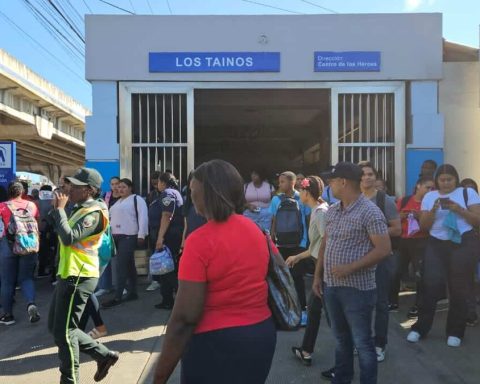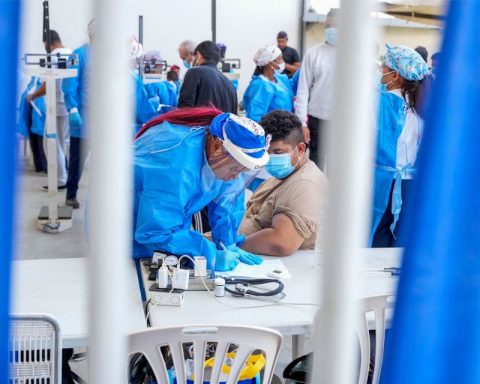The National Institute of Professional Technical Training (INFOTEP) presented to the national productive sector its project for the Strengthening and Expansion of the Dual Training Program with a view to benefiting 3,000 young apprentices in the next three years, with the support of the Inter-American Development Bank (IDB) and the Business Initiative for Technical Education (IEET).
The purpose is to motivate the involvement of entrepreneurs with Dual Training, whose expansion is carried out within the framework of the Program to Strengthen Education and Vocational Technical Training (TVET) that the government launched with funds from the IDB, in search of improve the coverage, quality and relevance of technical education and training.
“In INFOTEP we recognize that the productive sector, in order to grow and participate in the global market with competitive products and services, requires people with the knowledge, skills and behaviors appropriate to the occupations in its value chain,” said Rafael Santos Badía, general director of the tripartite institution, during the meeting with the country’s business sector.
He added that this new vision addresses the specific needs of the sectors prioritized in the strategy of the Dominican State and responds to these requirements by developing, in a timely manner, the skills of new workers that boost the productivity and competitiveness of companies.
On her side, Catherine Piña, executive director of IEET said that “from our institution we see the economic development and social welfare of Dominicans as the effect of a system that works like a gear in which the fundamental piece is the ability to form and educate our citizens. Without adequate education and training mechanisms, government plans and company growth intentions fall short of producing the desired effects”.
This project includes competitive funds for companies that promote a greater demand for apprentices, especially women, as a way to increase the number of women in careers linked to the program.
Also, strengthen the curriculum design strategy; training and internships for teachers and monitors; the adaptation of the equipment of the Technological Centers to increase the offer in occupations with greater potential for generating employment, as well as specific information campaigns for young people (men and women) and for companies, in the interest of increasing the appreciation of dual training .
In his speech, Professor Santos Badía added that the current management of INFOTEP is focused on making its offer more relevant to companies.
“Only with offers that really enable people with the skills that the productive sector needs, we will be able to honor the expectations of the participants of training programs who seek to enter and progress in the productive sector,” he explained.
On his side, Rayza Pichardo, director of Business Competitiveness, when presenting the program, indicated that the IDB has $5 million dollars available for the expansion of the Dual Training Program.
He adds that with the new Dual Program, which seeks to expand coverage from 300 to a thousand apprentices per year, until 2025, INFOTEP will be a pillar for the competitiveness of the country’s productive sectors, developing human capital to increase opportunities for insertion in the labor market.
What is expected of the productive sector
With the initiative to Strengthen and Expand the Dual Training Program, it is hoped that companies will become learning spaces in this modality, that they will participate in the consultation commissions for the development of programs and that they will be spokespersons for the initiative so that other companies are also incorporated.
The dual modality combines theoretical learning in the classroom with practice in the work environment. In this program, the participants are in a work center around 80% of the hours required for their training.
Current bid
INFOTEP modernizes its offer in an effort that it has called Training 4.0, with which, in addition to responding to the needs of Industry 4.0, it permeates all sectors in their digital transformation processes.
Technical careers are currently offered in electrical maintenance and instrumentation for generation, industrial plant operation services, operation and maintenance of power generation plants, sale of products and services, and operation and maintenance of electric generators.
Dual Training
Among the advantages of dual training are: Programs tailored to the needs of companies, the possibility of offering programs for specific needs and that apprentices are not only trained in technical matters, but also in fundamental soft skills. Another benefit is the reduction of costs related to recruitment and the learning curve.
The presentation on the Strengthening of the Dual Training Program was made by the main executives of INFOTEP and IEET, in a meeting with the Dominican business sector.

















